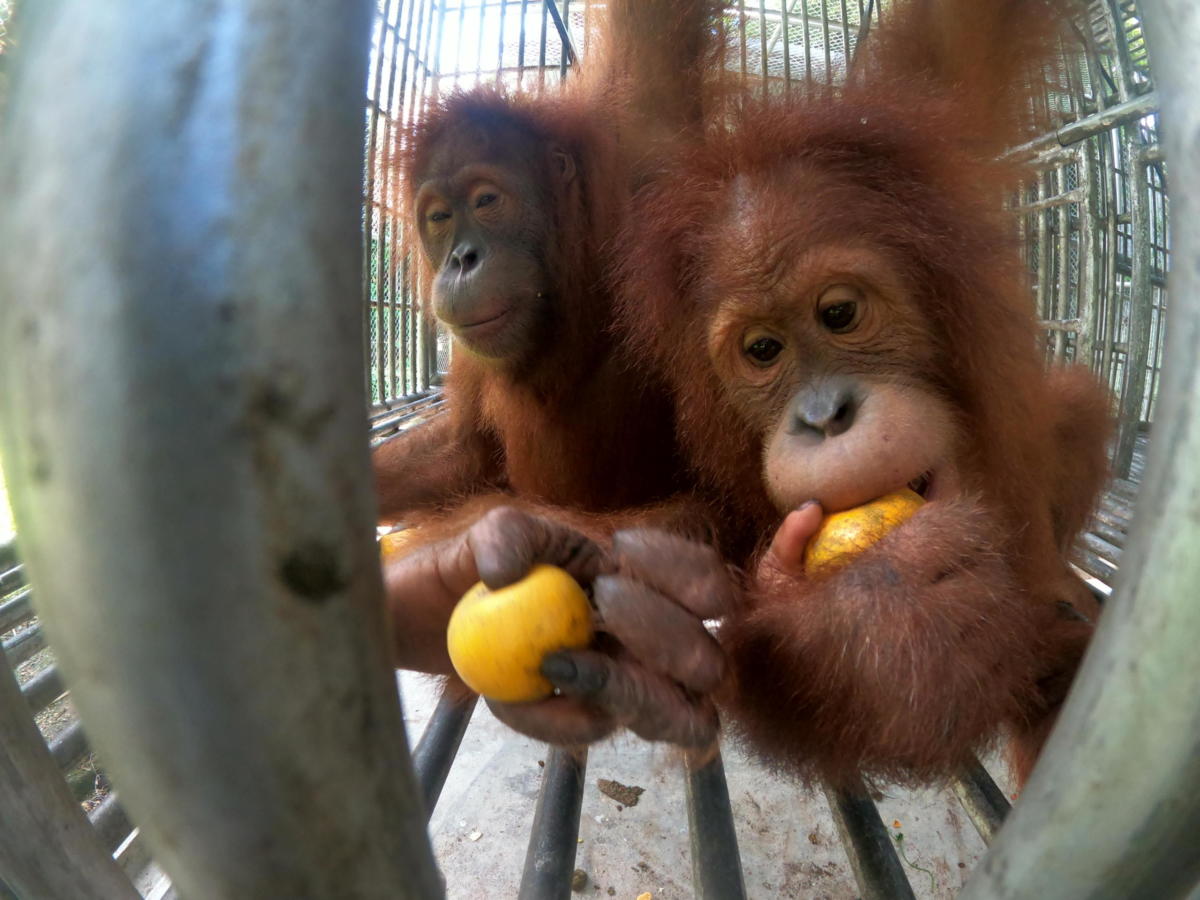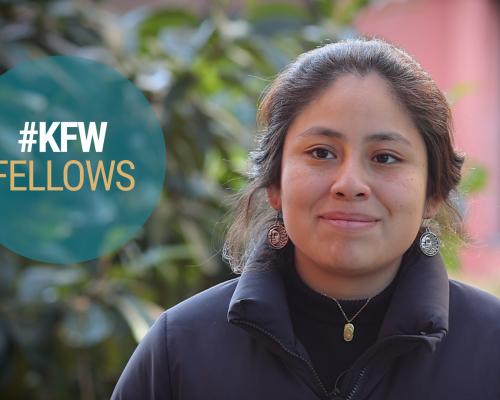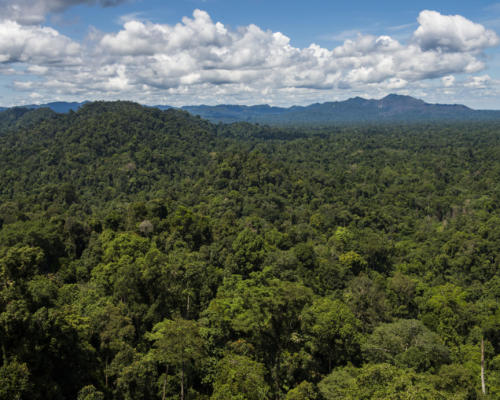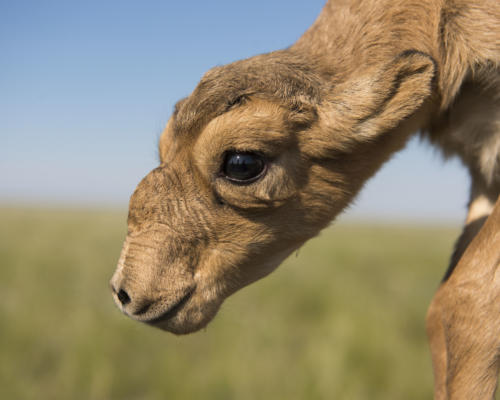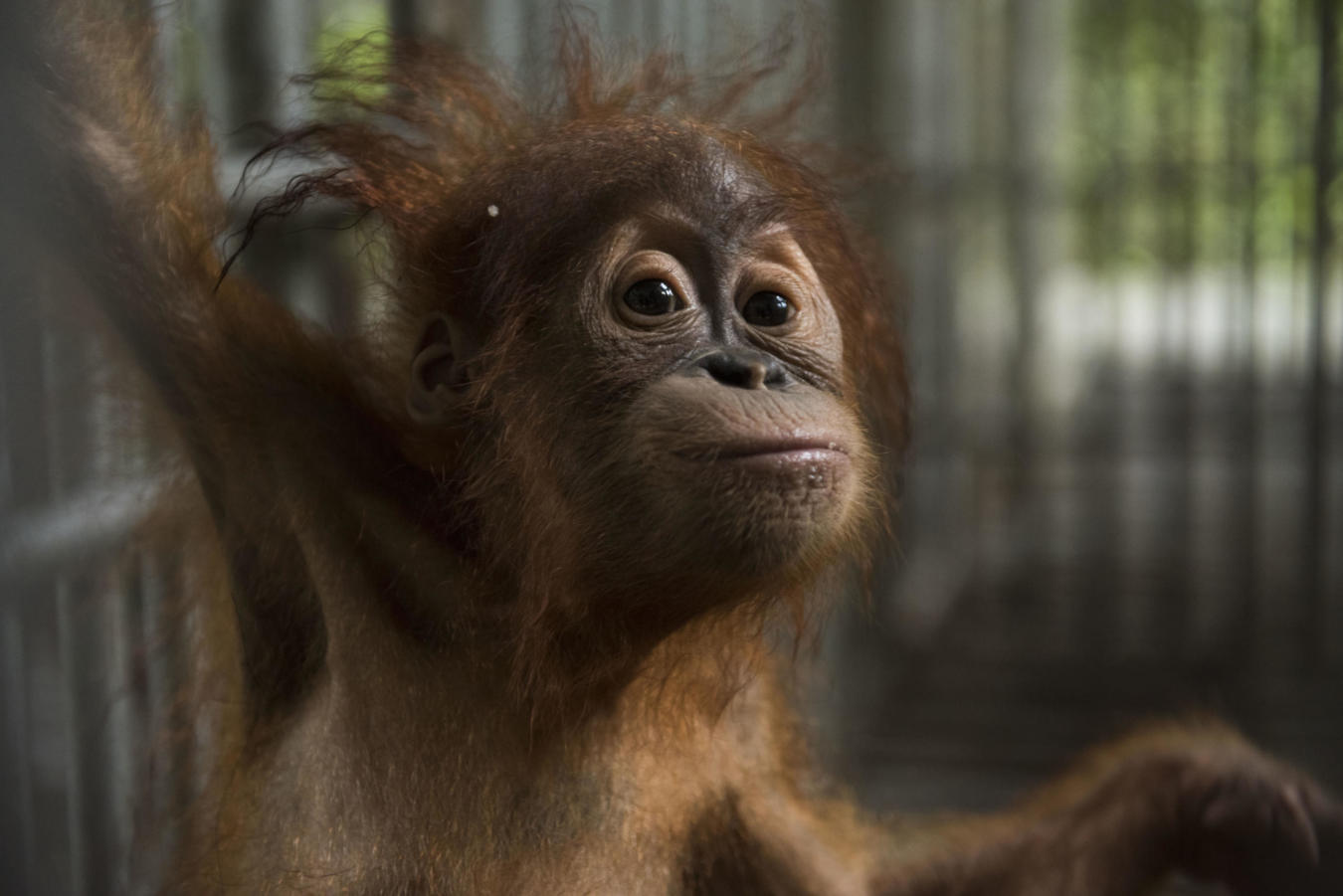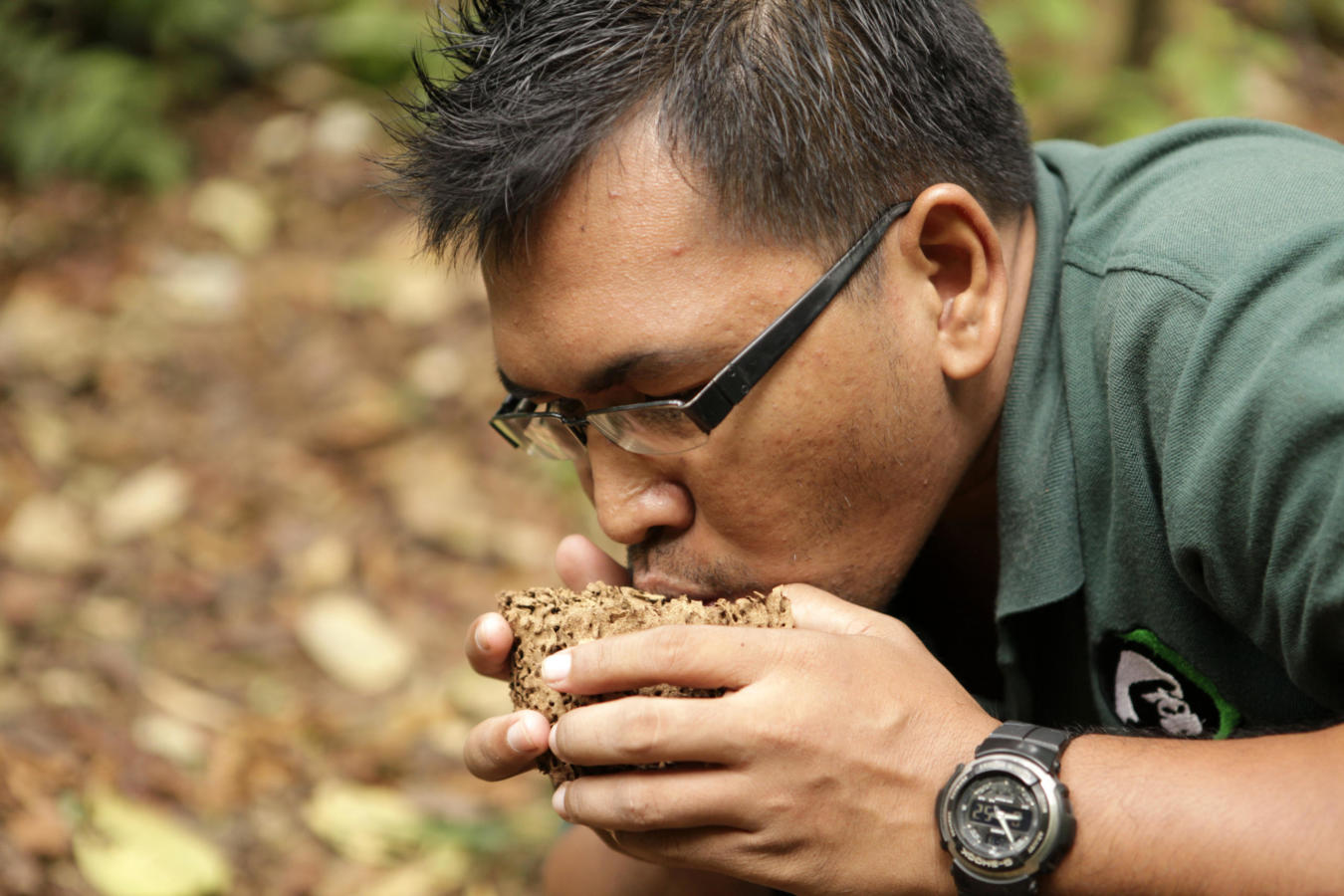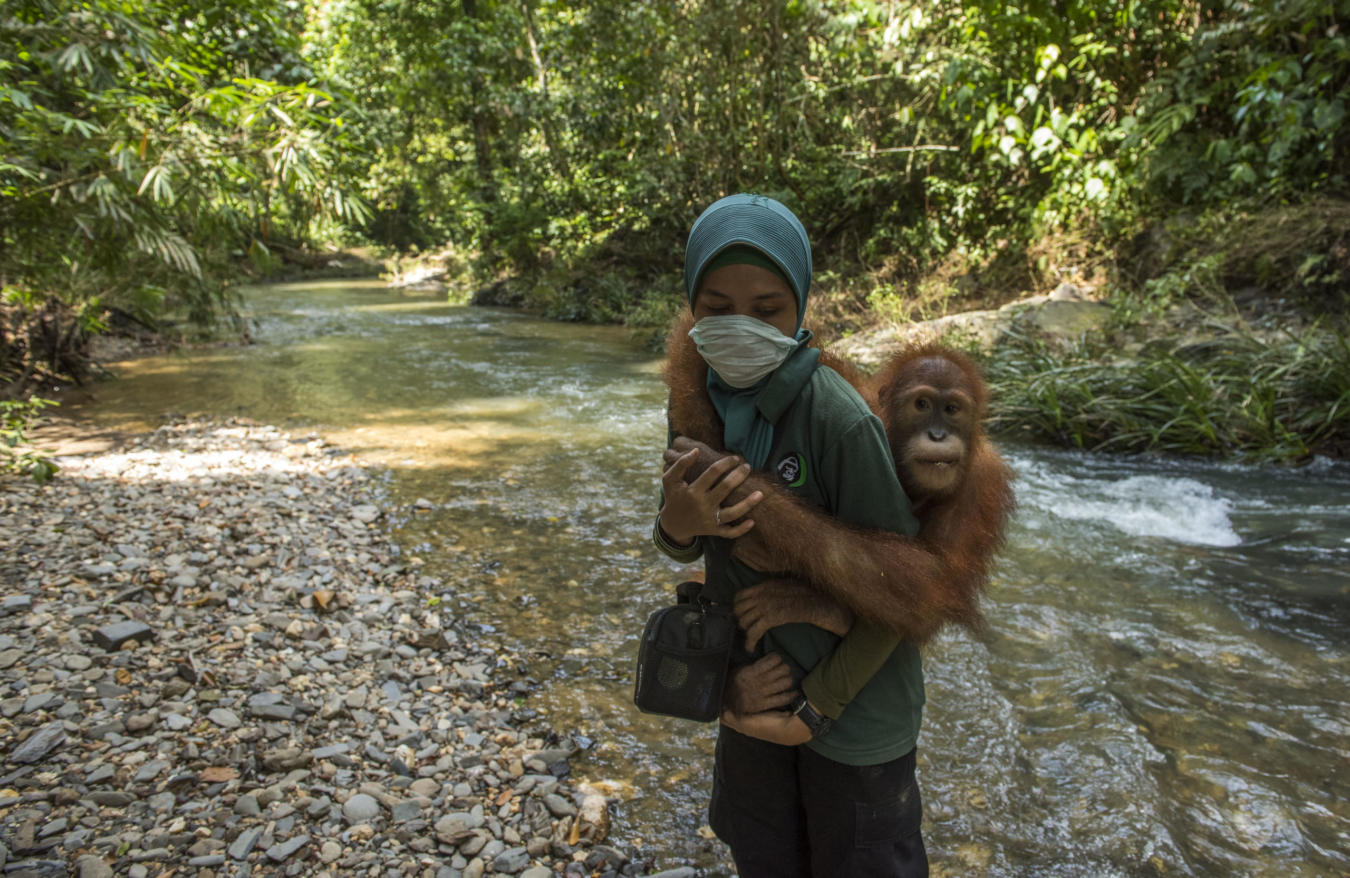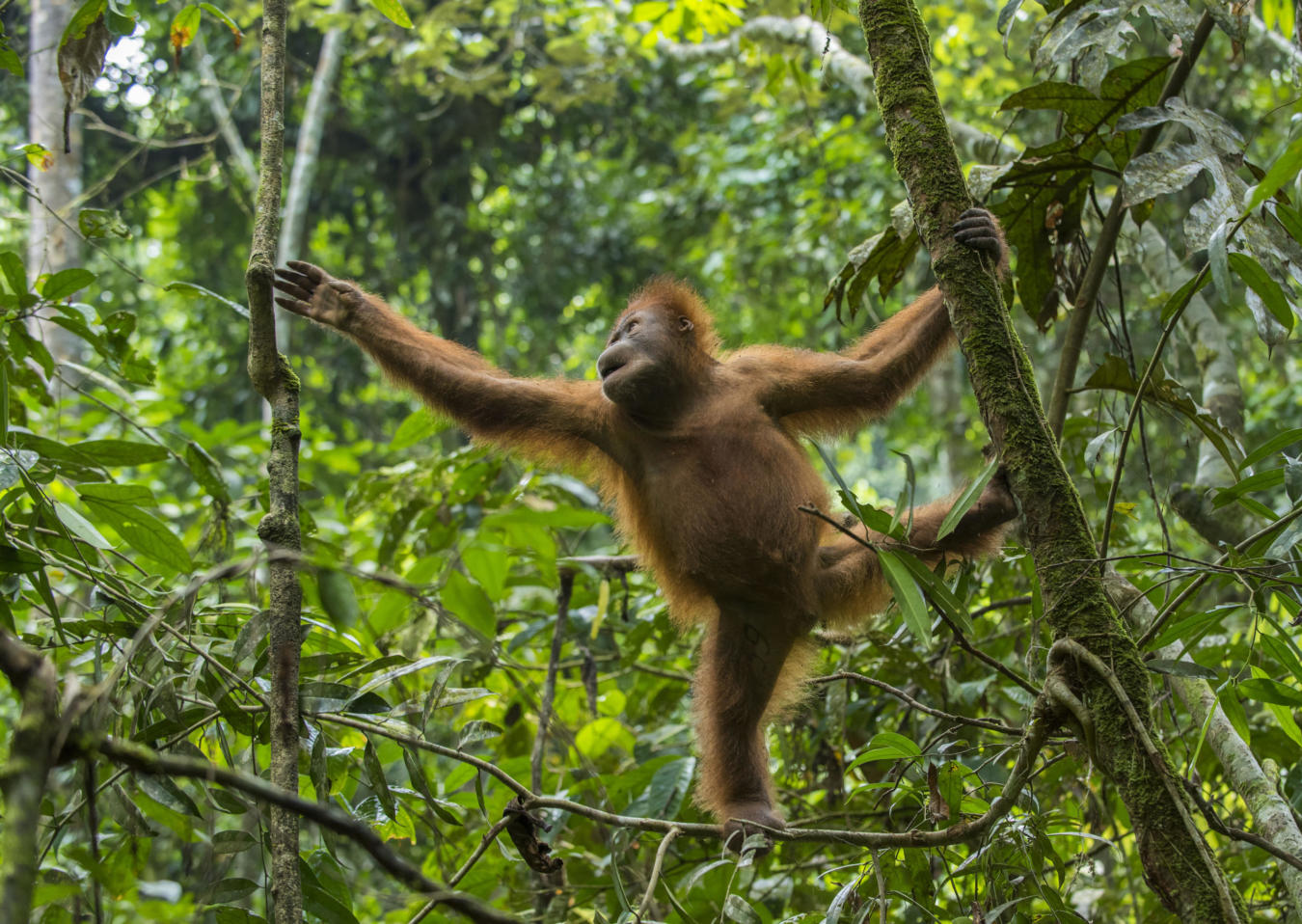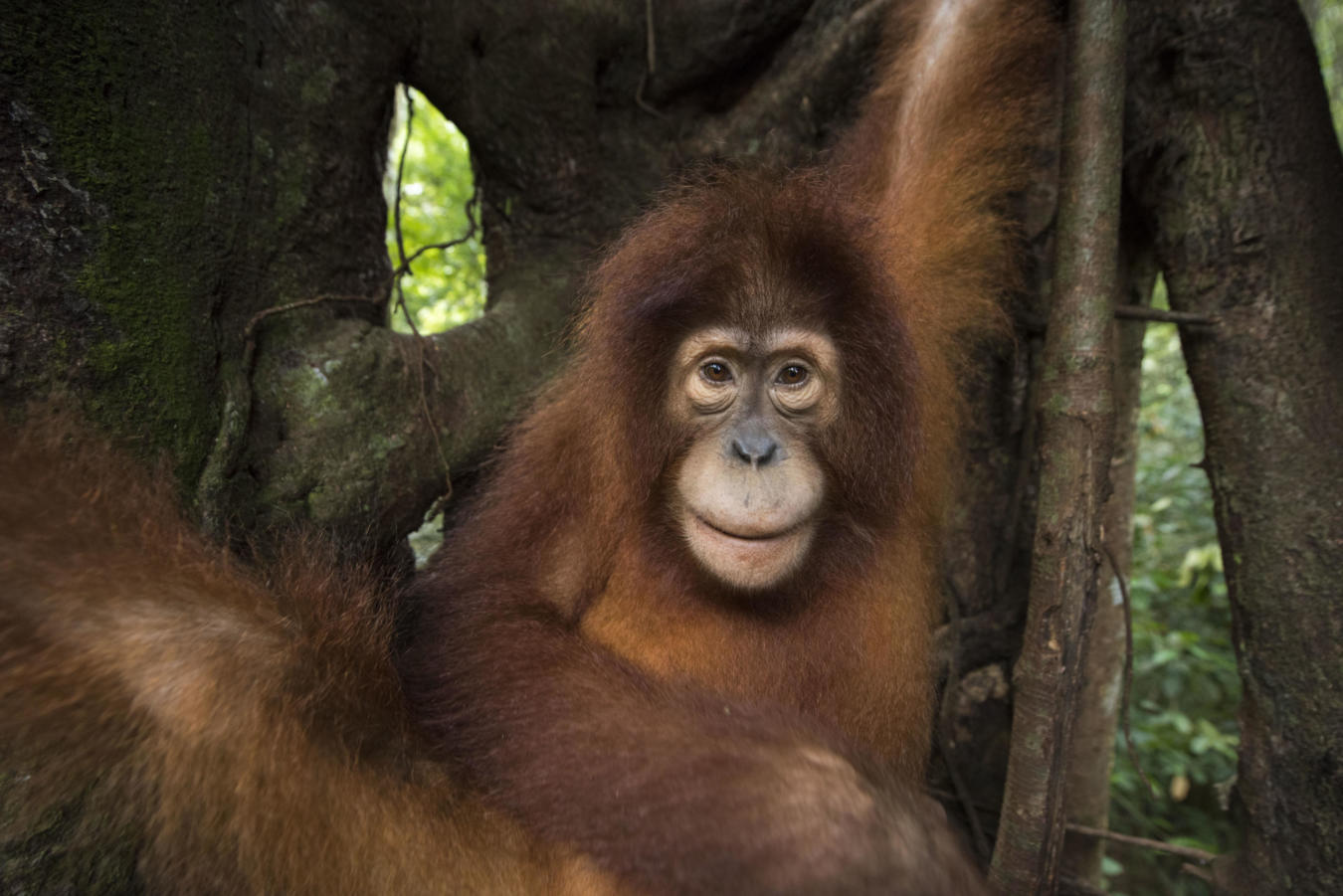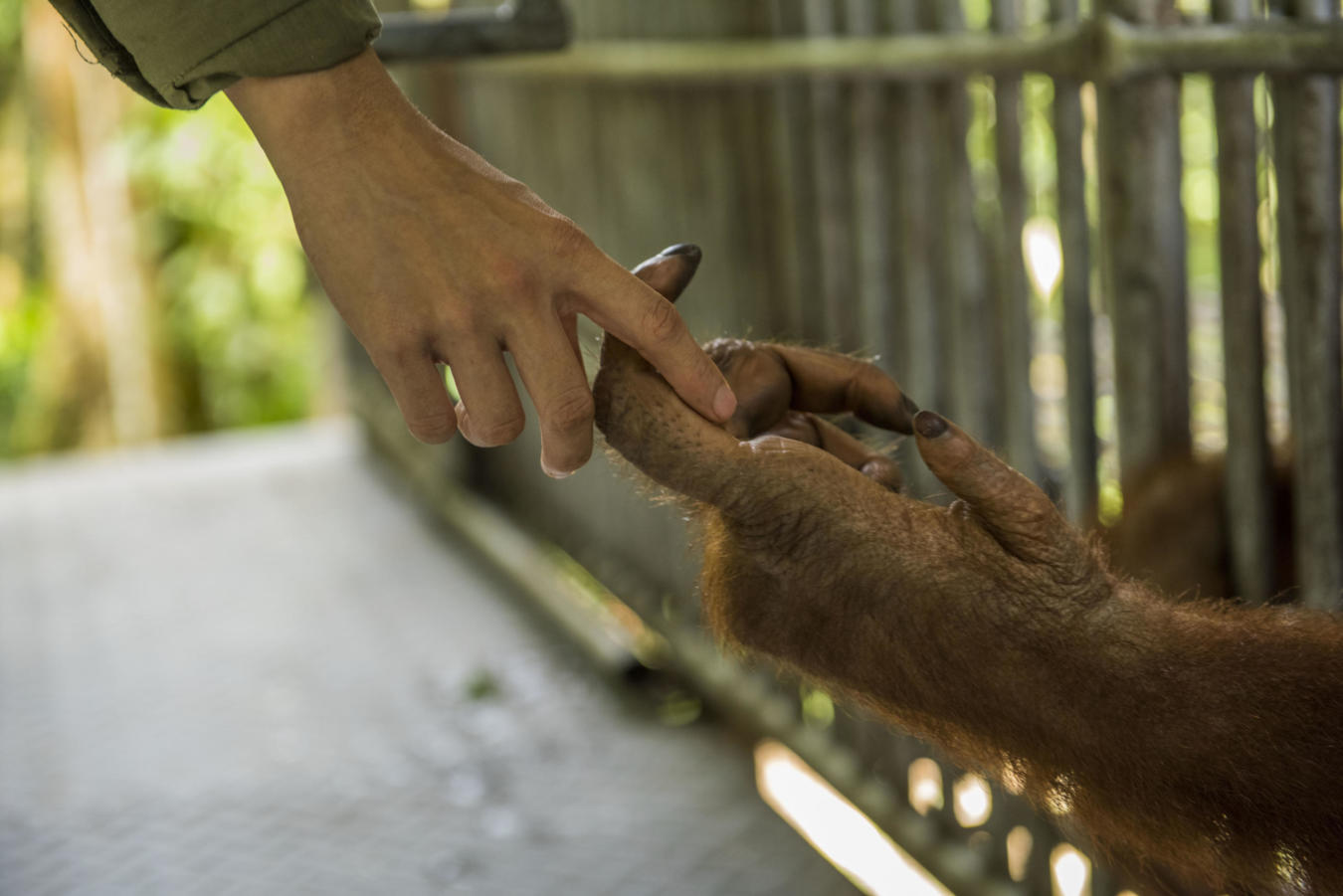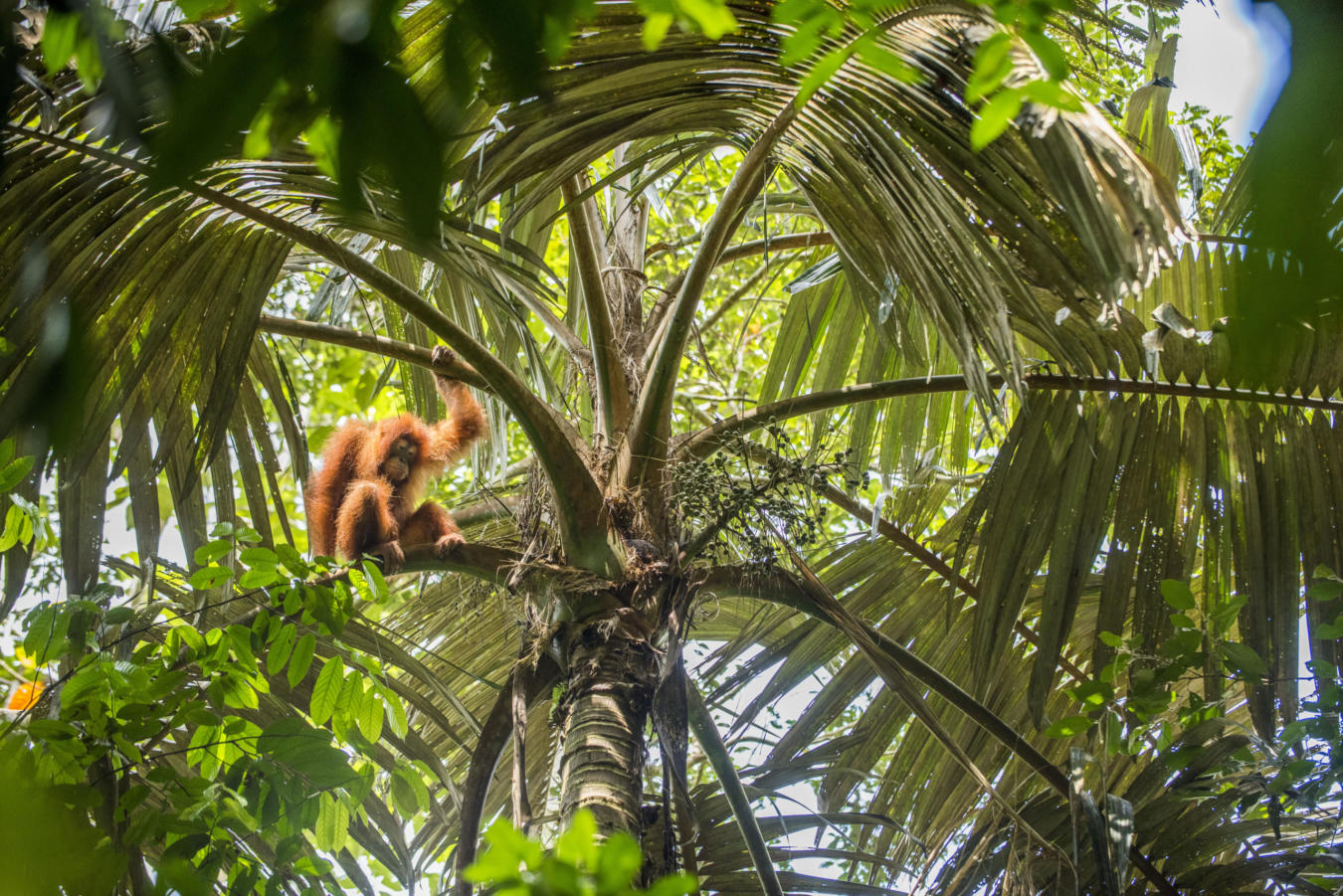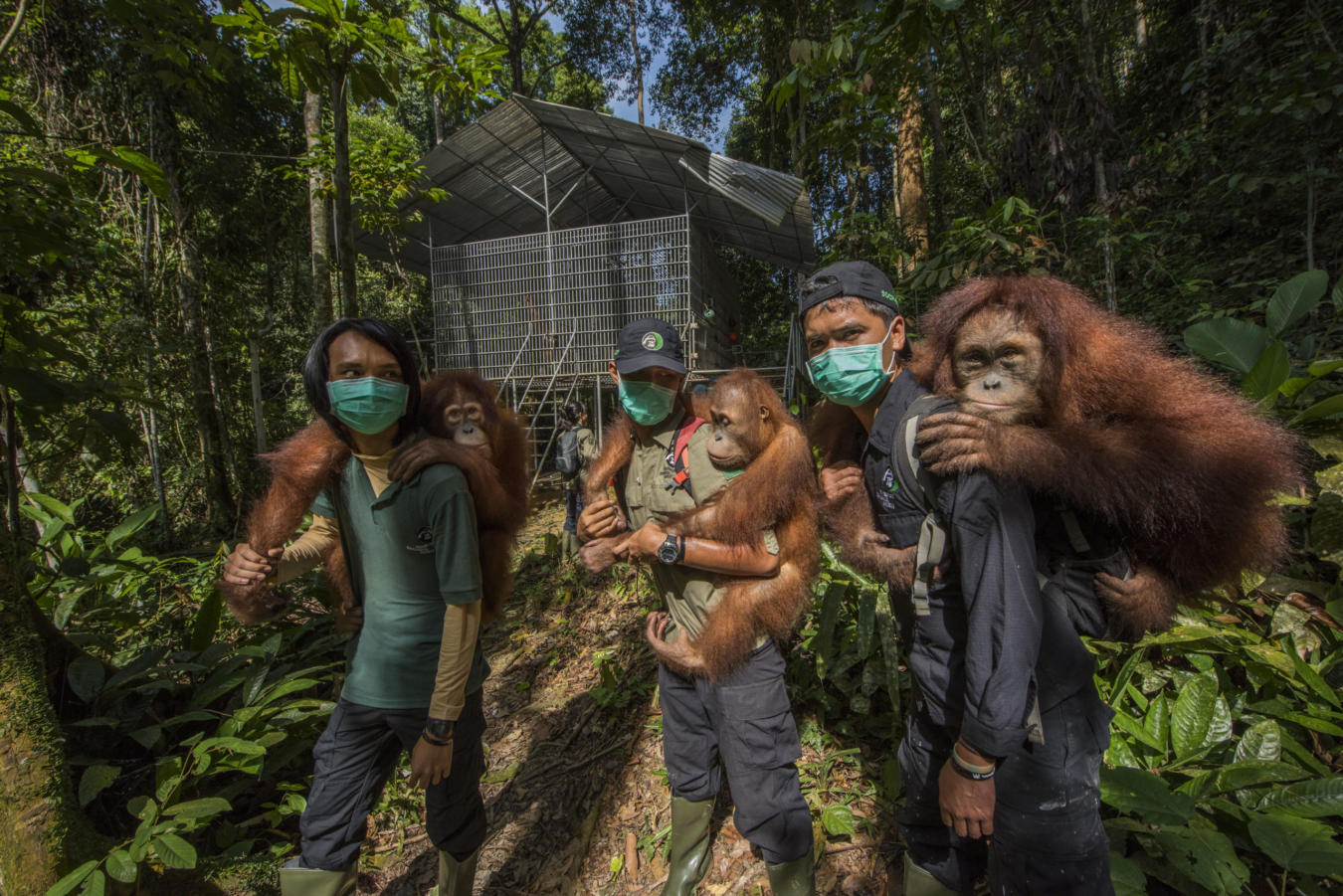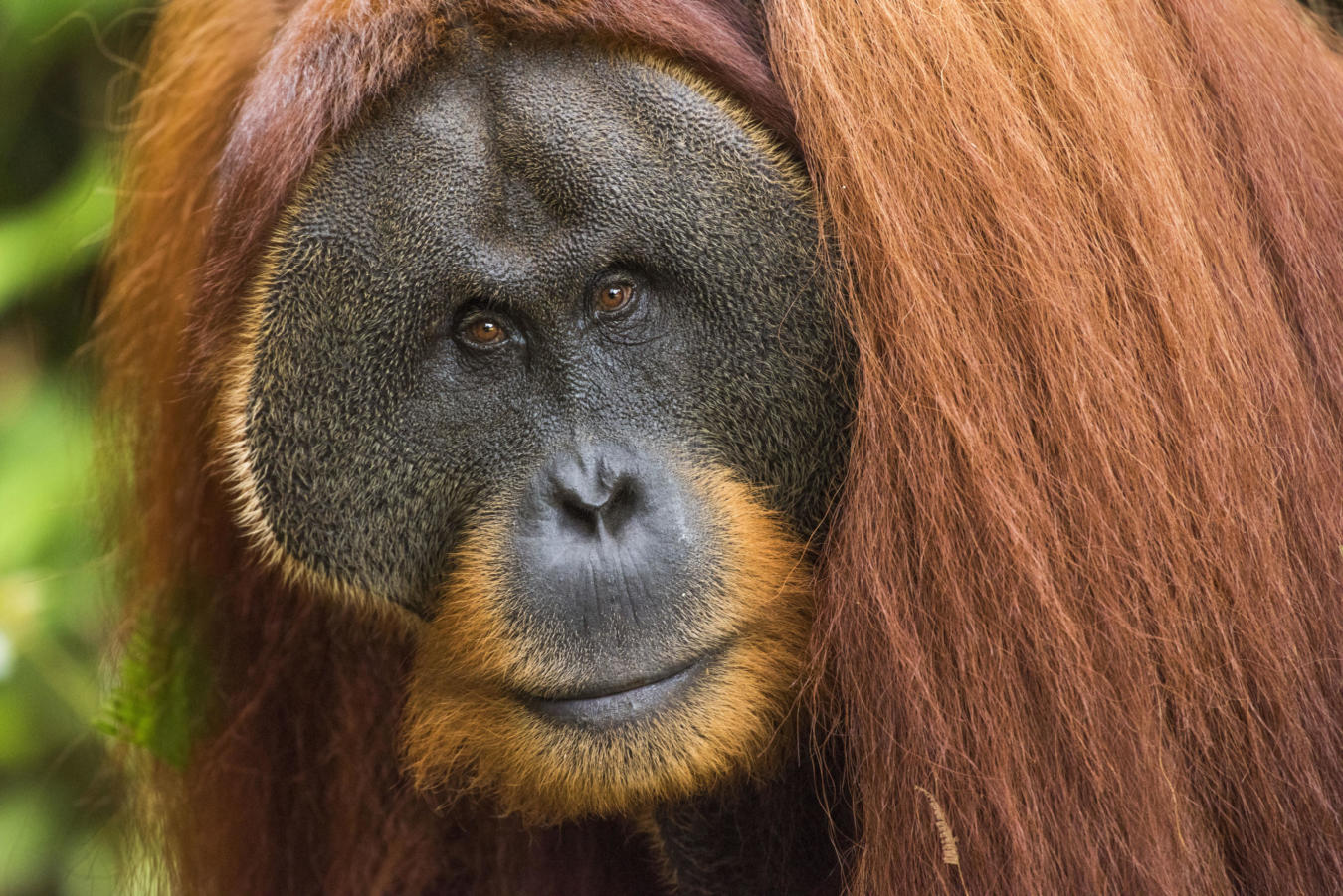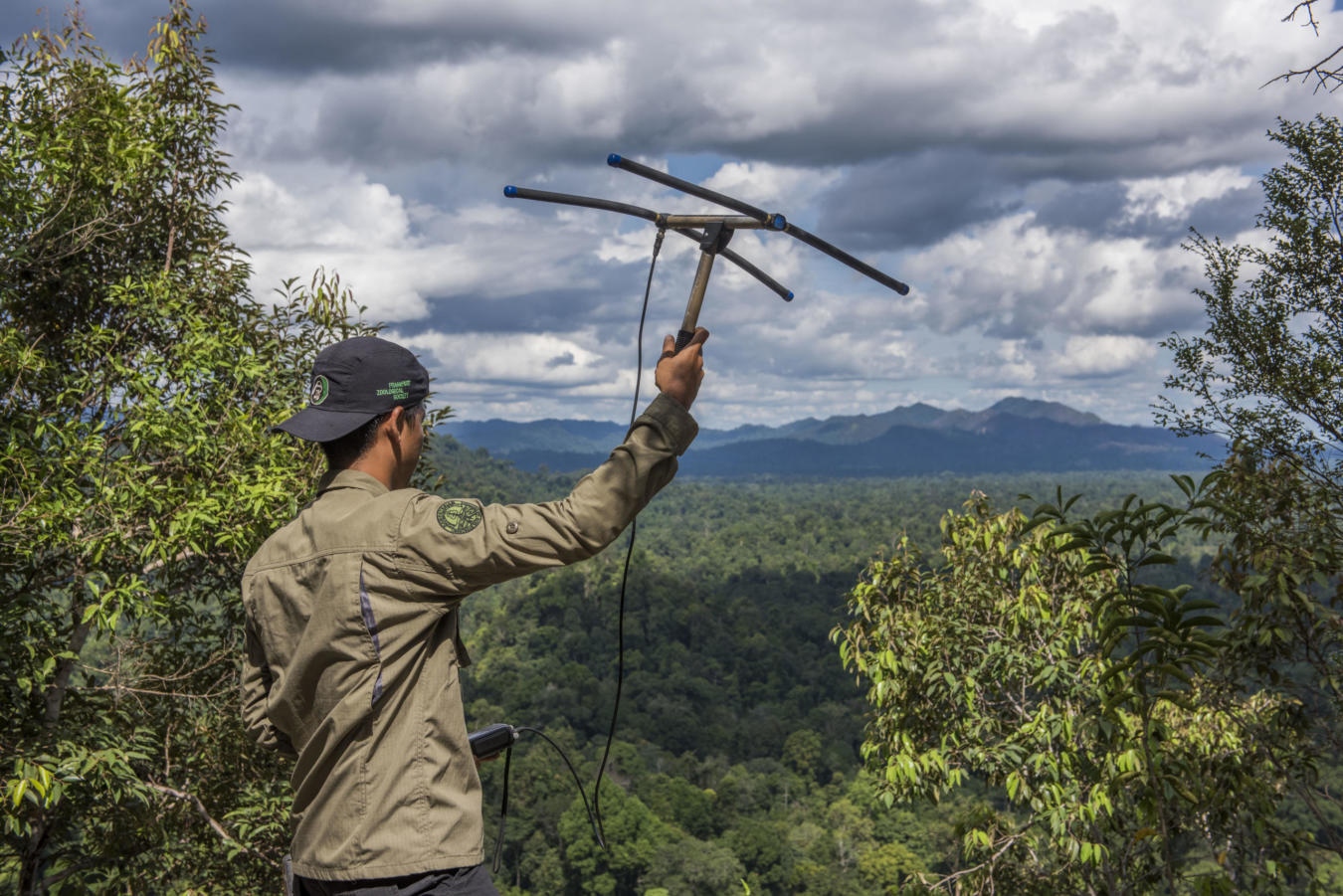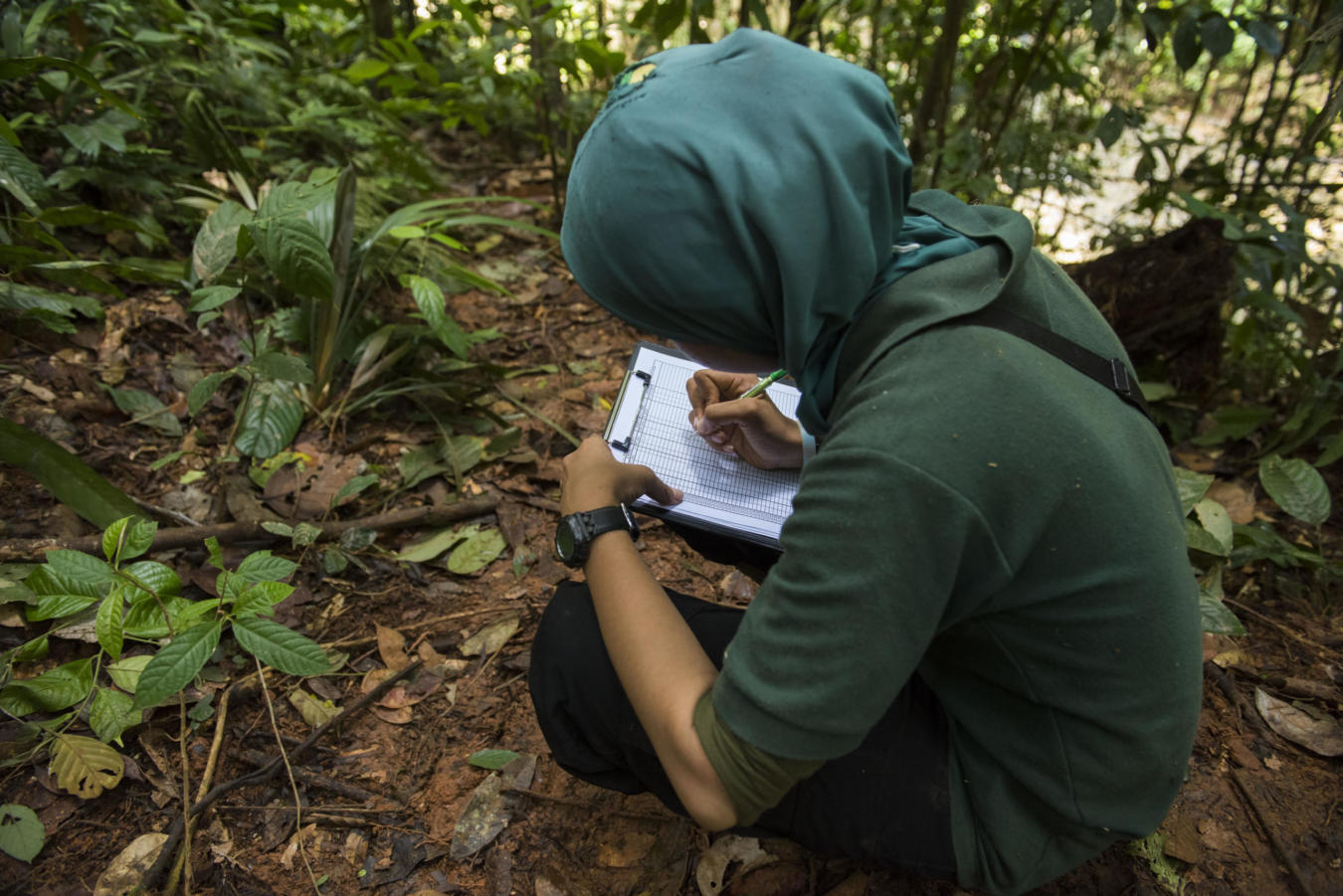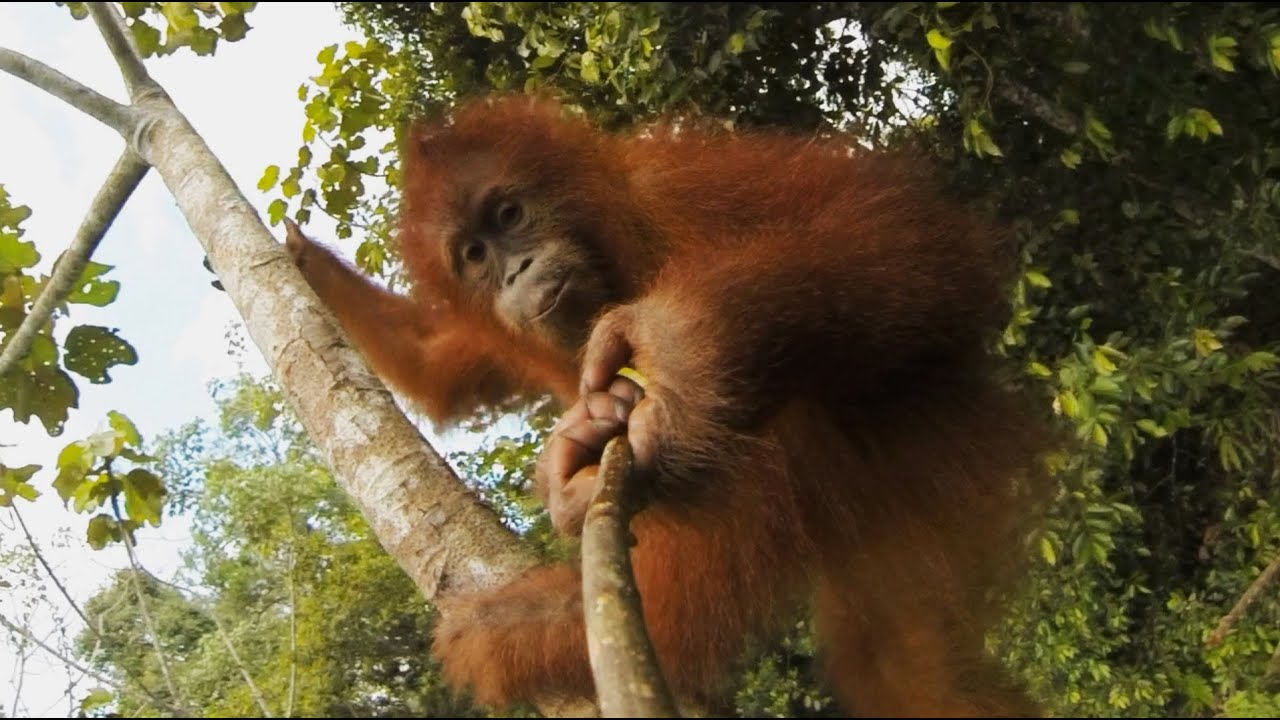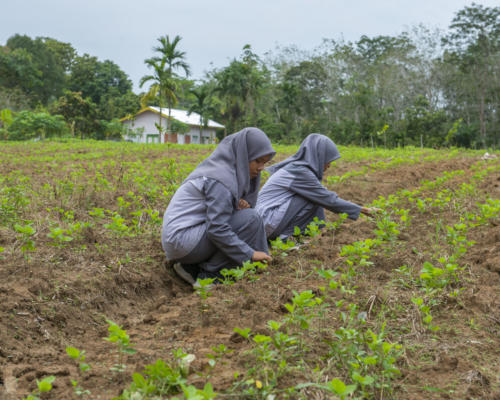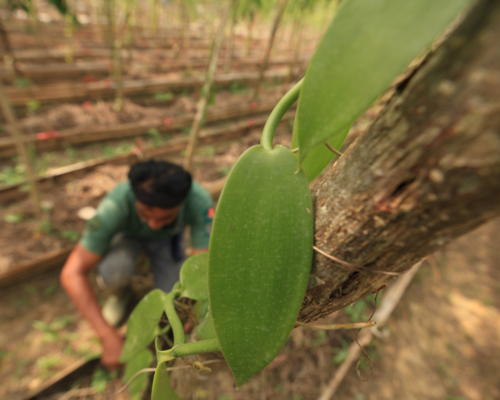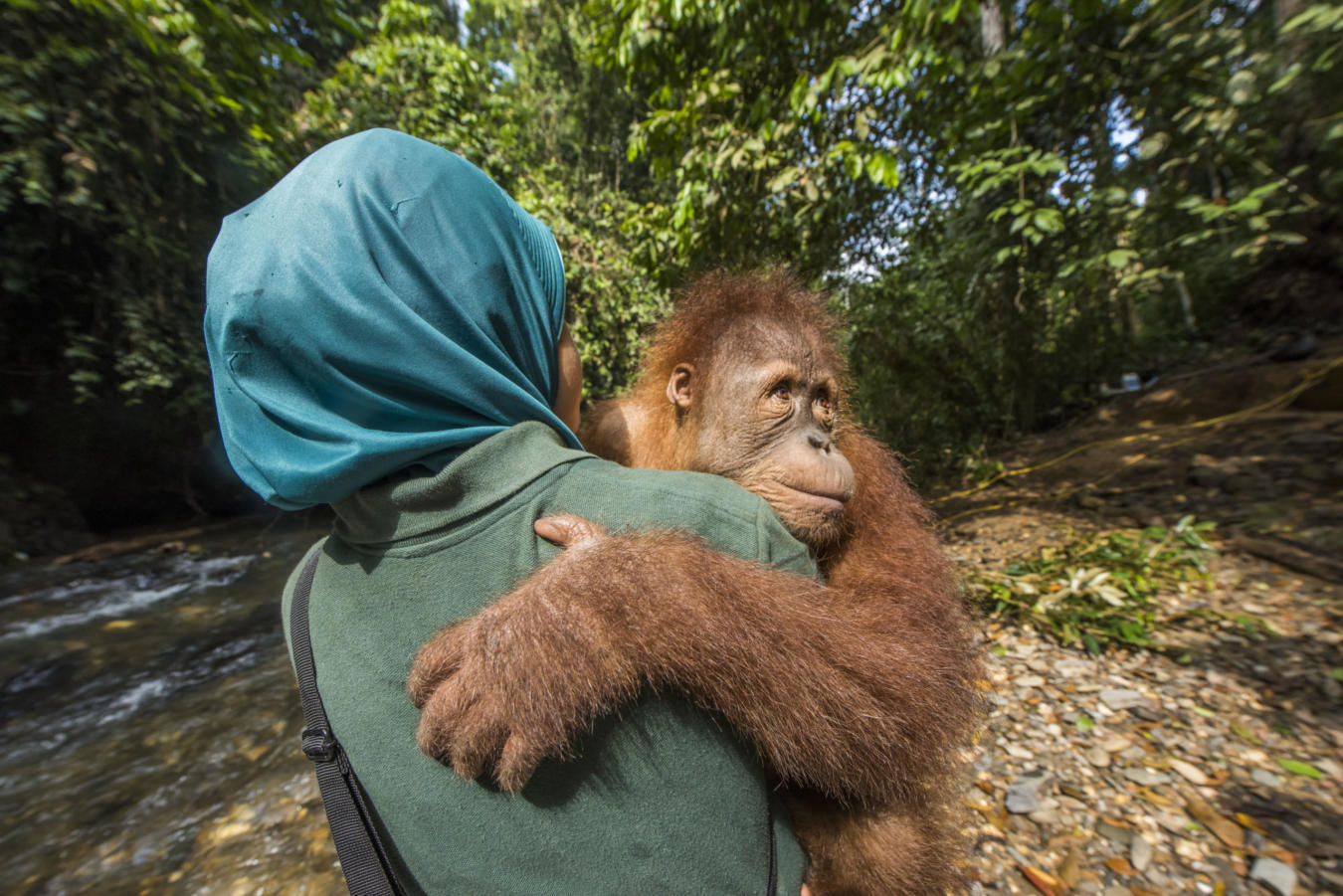
Part of our conservation work in Bukit Tiga Puluh, Indonesia, includes safeguarding the critically endangered population of Sumatran orangutans. We do this by protecting their habitats from the increasing threats of illegal activities, such as deforestation, and by re-building their numbers through the FZS Jungle School.
At the Jungle School, young confiscated orphaned orangutans learn the skills they need to survive independently in the wild. Since 2002, more than 175 formerly captive and confiscated animals have been released back into the wild. Now this group of orangutans is beginning to reproduce independently, further growing their numbers and increasing the chances of survival for this species.
- Jungle School for Sumatran orangutans
- FAQs
- Meet two current Jungle School students
- back to top
- Jungle School orangutans, often, were previously kept illegally in captivity and have not learned the skills they need to survive in the wild
- Among other things, they learn to climb, build sleeping nests, and what can be eaten
- At the School, they learn primarily from other older classmates and through trial and error
- Jungle School orangutans range in age from four to seven years old
- After release, our teams continue to monitor the orangutans until they are confident that the animals can manage independently in their natural habitat. All the while, the team collects observation data and gains valuable insight into the orangutan’s behavior, such as migration patterns and habitat selection
Sumatran orangutans are critically endangered species. Since 1925, orangutans have been protected by law in Indonesia. Despite this young Sumatran orangutans are illegally kept as pets. For this, mother animals are killed and the offspring are sold to the illegal wildlife trade.
Dr. Peter Pratje, FZS Program Manager, and his team have been working on creating a stable and self-sustaining population of orangutans, which would be about 250 individuals, in Bukit Tiga Puluh, to protect the species. They do this by taking in orphaned orangutans who have been rescued from the illegal wildlife trade and spending years teaching them critical survival skills so that they can one day live in the wild again. Skills their mothers, tragically, never got a chance to teach them.
Most orangutans are between the ages of four to seven. Very often the great apes were traumatized and kept in poor conditions and taken from their mothers at an early age. This means the animals have a lot to learn in the FZS Jungle School for survival in the wild. In the wild, young orangutans stay with their mothers for around the first eight years of their life, receiving intensive and exclusive care from them. It is therefore a long and tough process.
Essentially, they learn the skills their mothers would have taught them, such as how to climb trees, how to build a sleeping nest, find foods to eat. They also have to get used to the sounds of the rainforest, birdsong, rainfall etc.
The orangutans learn mostly from smart classmates from older grades and through trial and error. Orangutan trainers track reintroduction progress and determine a monthly index that assesses the individual nutritional status of each reintroduced orangutan. They monitor the mental and physical health of the animals in order to constantly adjust the adaptation program individually. This is an elaborate program that can take a few months or up to several years. The trainers need a lot of fitness and patience for this job and vets support them.
The first lesson the orangutans much learn is identifying the right food to eat. This training happens right away, even while they are still in their mandatory one-month quarantine when they first arrive at our facilities. During this time, we give them food several times a day, consisting of foods that they would find in the forest, such as termites, rattan stem, and tree cambium.
We also start training them in identifying the materials they will need to build their nests, another important skill. To do this we bring them leaves and branches every day.
Then, when they are finished with their quarantine, they join the Jungle School.
Here they get food twice a day, which is hidden in rice bags, bamboo tubes, hardshell balls, or in a maze. They have to work for their food instead of just eating it. In the afternoon, they have to fish for the fruit with a stick, slurp termites out of the nest, or free red vines from their thorny husks to get at the nutritious pulp. Between meals, training takes place in the jungle up to twice a day. For this, the trainers carry the orangutans into the forest and encourage them to move high in the trees and explore their new wild home.
Orangutans are released only when they are able to fulfill the following:
- Find enough food, which should contain 50 percent wild fruit
- Move exclusively in the trees and not play on the ground, to be protected from parasites and tiger attacks
- Build sleeping nests for themselves at night
Former Jungle School orangutans are accompanied and monitored by FZS scouts during the first period after release. Post-release monitoring is also used to provide some orangutans in need with additional food and a few vitamins during their first year if fruits are scarce or if further medical care is needed. Good supervision of the released animals thus ensures a smooth and successful transition from jungle school to life in freedom in the rainforests of Sumatra. The survival rate of the released apes is more than 70 percent in the first two years after release.
Meet Ung Aing and Natalee. These six-year-old Sumatran orangutans were kept in captivity for five years before being rescued at the end of 2020 by Thai authorities (Natural Resources and Environmental Crimes Division). Shortly after they were transferred to the Jungle School on the 5th of April 2021.
